How to Roast a Chicken (And Make the Most of It)
This post may contain affiliate links. Please read my disclosure policy.
There is nothing more satisfying to me than roasting a whole chicken. It’s the gift that keeps on giving. In addition to feeding my family of six, it gives me a carcass with which to make stock and enough extra meat to toss into a salad or add to soup for a meal on a subsequent night.
I’ve written about the Zuni Cafe chicken before in the context of the bread salad, but I thought the chicken-roasting method, which yields crisp, evenly golden skin and perfectly cooked meat every time, deserved its own post.
The method, if you are unfamiliar, calls for salting the chicken a day or two in advance. Recently, I reread the passage in The Zuni Cafe Cookbook’s introduction titled “The Practice of Salting Early,” which explains in great detail when author and chef Judy Rodgers learned to salt meat in advance and why it works. I could sum up the takeaways as such:
- Salting in advance does not make meat taste too salty; it makes it tasty all the way through.
- Salting in advance promotes juiciness and improves texture.
How? Bear with me:
- First, salt dissolves some of the proteins within and around muscle fibers that would otherwise resist chewing.
- Second, although salt draws moisture from the cells initially, with time the cells reabsorb the moisture in reverse osmosis. Moreover, the salt changes the proteins, enabling them to “open up” and entrap more moisture than before.
Judy writes: “When you heat these transformed proteins, they don’t coagulate and squeeze out moisture quite the same way unaltered proteins do; some of the recovered moisture survives the ravages of heat. All of this results in seasoned, moisture-laden cells, less tenaciously attached to one another than their unseasoned counterparts.”
Science mostly makes my head hurt, but the results speak for themselves: juicy, well-seasoned meat throughout. I have been salting chickens in advance ever since making Zuni’s recipe. In fact, if I don’t have time to salt a day in advance, I’ll cook something else instead.
Included in the recipe below are instructions for making stock. If you make the stock, here’s a simple soup to use it in. And if you find yourself with leftover meat, here’s a simple salad to toss it into.
Here’s the play-by-play: Salt the chicken a day prior to cooking. Use 1 teaspoon kosher salt per pound of meat. Store in the refrigerator.
The next day, pat it very, very dry all over with paper towels.
Heat an oven-safe skillet over medium heat for about 5 minutes (without the bird in it). Place the dried chicken into the heated pan breast side up.
Immediately transfer to the oven, and cook for 25 minutes.
Flip the bird over. Return to the oven and cook for 10 minutes.
Flip it over again, and cook for 5 to 10 minutes more.
Let chicken rest for 15 minutes before carving it.
You can make a simple sauce with a splash of water, a pad of butter, and a little lemon if you wish.
Carve up the chicken.
To make stock, throw the carcass and any bones into a 4-qt pot. Cover with water, and…
… simmer for 2 to 3 hours.
Strain the stock.
Store the stock. Store in fridge for up to a week; freeze for up to 6 months.
See how juicy the breast is?
Use any leftover meat for a salad:
Or a simple chicken-noodle-ish soup:
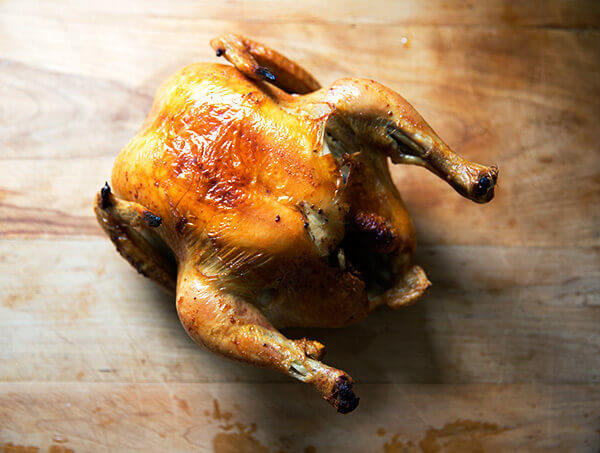
How to Roast a Chicken
- Total Time: 50 minutes
- Yield: 4 to 6
Description
Adapted from The Zuni Cafe Cookbook
This is my favorite method for roasting a chicken. The key is to salt ahead of time. Two to three hours ahead of time is great; one to two days is even better. A good rule of thumb: use 1 teaspoon kosher salt (I use Diamond Crystal) per pound of chicken.
I store the salted chicken in the fridge in a 4-qt Pyrex bowl that has a lid. When I’m ready to roast, I’ll try to pull the chicken out an hour beforehand, and I pat it very dry with paper towels.
Ingredients
- One chicken, 3 to 4 lbs.
- kosher salt
- freshly cracked black pepper
- pad of butter, optional
- squeeze of lemon, optional
Instructions
- A day before (or at least 2 to 3 hours before) you plan on roasting the chicken place it in a large bowl (4-qt or so). Season it all over with kosher salt using about 1 teaspoon for every pound of meat. Cover the bowl and stick it in the fridge. Remove bowl from fridge an hour (if possible) before you plan on roasting the chicken.
- Preheat the oven to 475°F. Choose a shallow oven-safe skillet. Preheat the pan over medium heat for about five minutes. Wipe the chicken dry (very dry!). Season all over with pepper if you wish. Set it breast side up in the pan. It should sizzle.
- Place the chicken in the pan in the center of the oven for 25 minutes. Turn the bird over — drying the bird and preheating the pan should keep the skin from sticking. Roast for another 10 minutes, then flip back over to re-crisp the breast skin, another 5 to 10 minutes. If you have an instant-read thermometer, it should register about 165ºF.
- Remove the chicken from the oven and turn off the heat. Lift the chicken from the roasting pan and set on a plate. Add about a tablespoon or two of water to the hot pan and swirl it. Slash the stretched skin between the thighs and breasts of the chicken, then tilt the bird and plate over the roasting pan to drain the juice into the drippings. Add a pad (a tablespoon or so) of butter to the pan, if you wish. Using a wooden spoon, scrape up any chicken bits stuck to the pan. Taste the sauce. Add a squeeze of lemon if you wish.
- Let the chicken rest 15 minutes before carving it. Serve with the sauce on the side.
- To make a stock with the carcass, remove any remaining meat from the bones. Be sure to really get into the breast and backbone and extract any meat. Save this meat for a salad or soup. Place all of the bones in a 4-qt pot and cover with water. Simmer slowly for about 2 to 3 hours. Strain into a bowl. Transfer stock to quart containers and store in the fridge for a week or the freezer for up to 6 months. You should have about 1.5 to 2 quarts of stock.
- Prep Time: 5 minutes
- Cook Time: 45 minutes
- Category: Dinner
- Method: baked
- Cuisine: American
This post may contain affiliate links. Please read my disclosure policy.

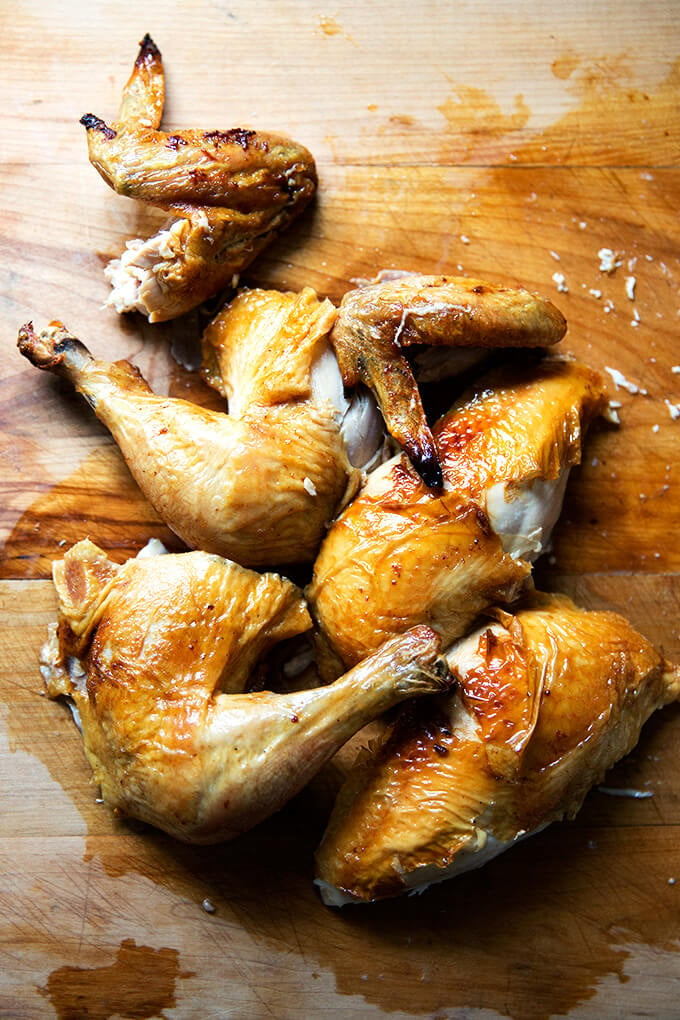
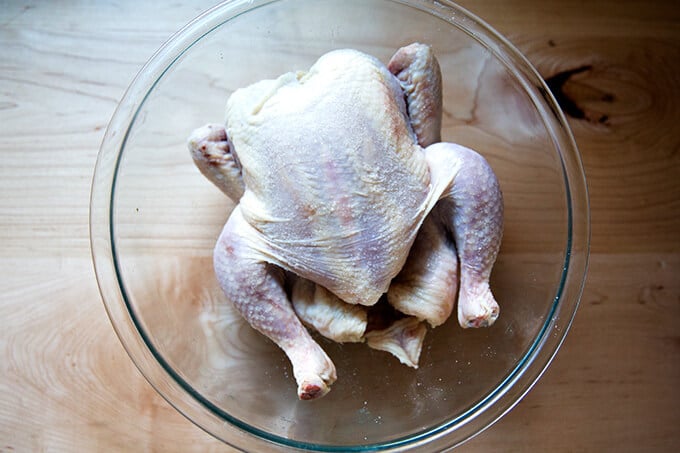
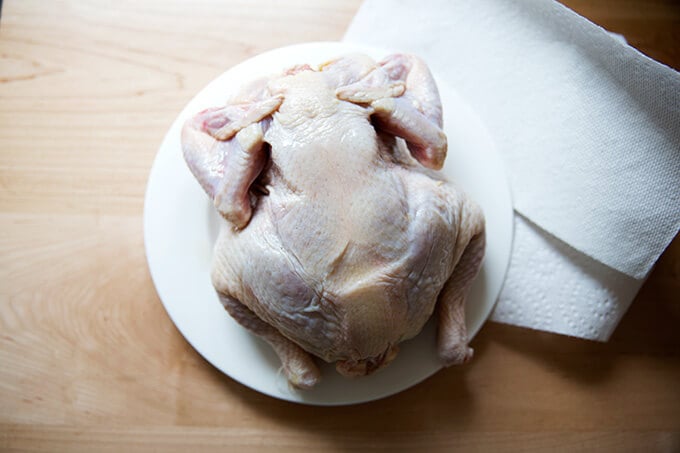
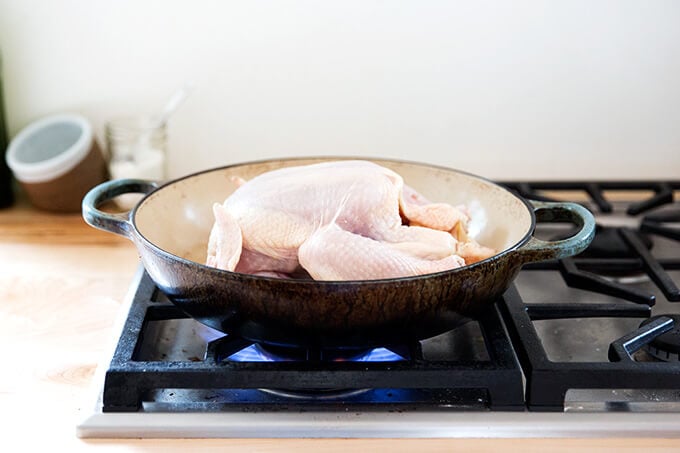
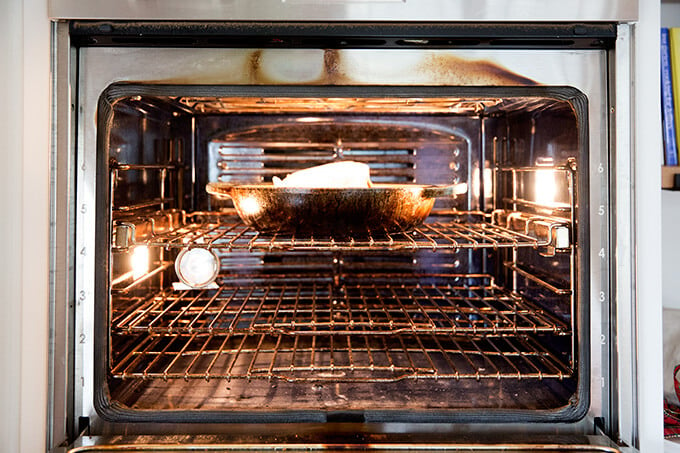
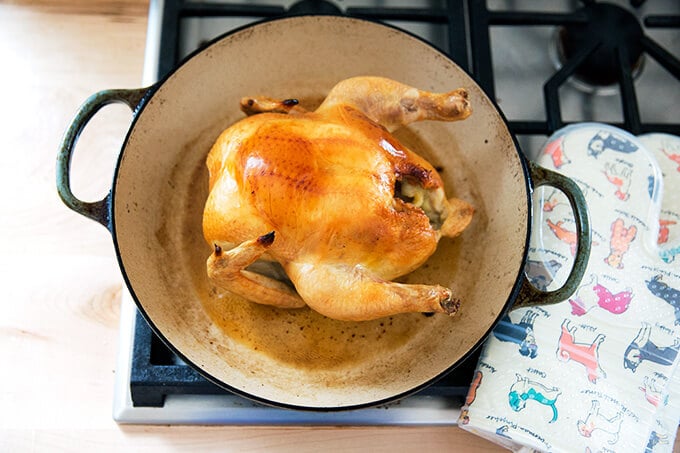
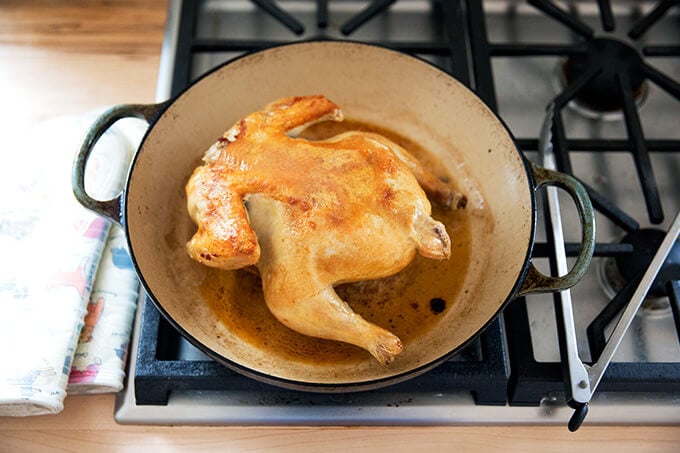
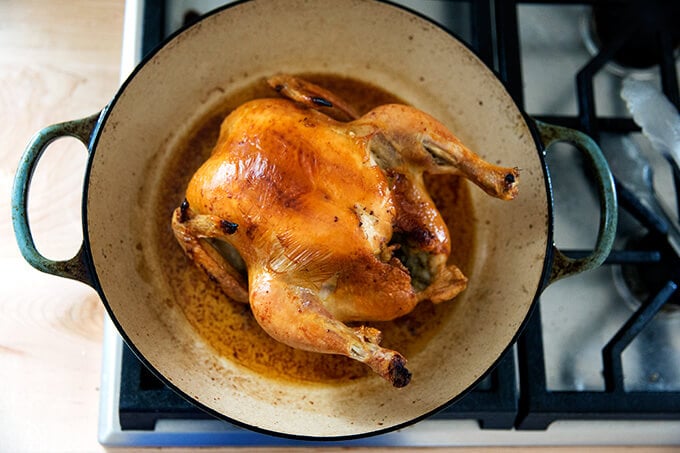
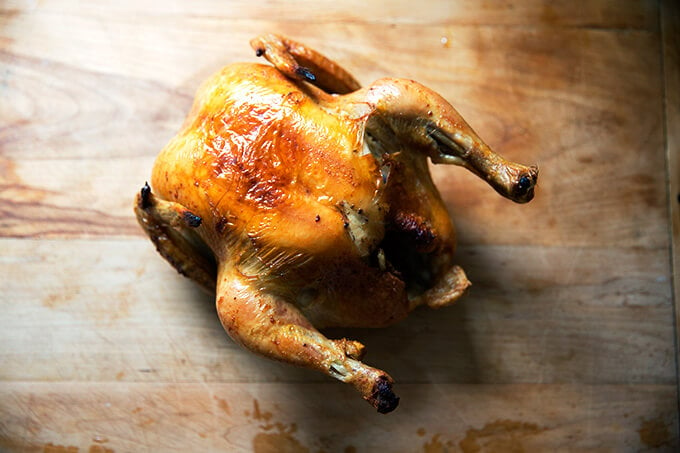
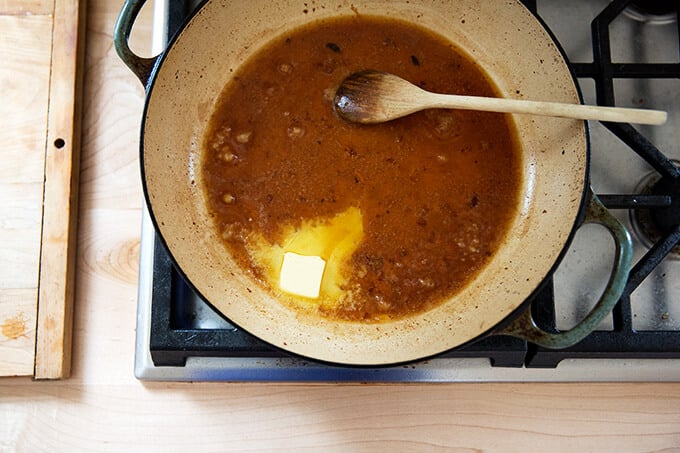
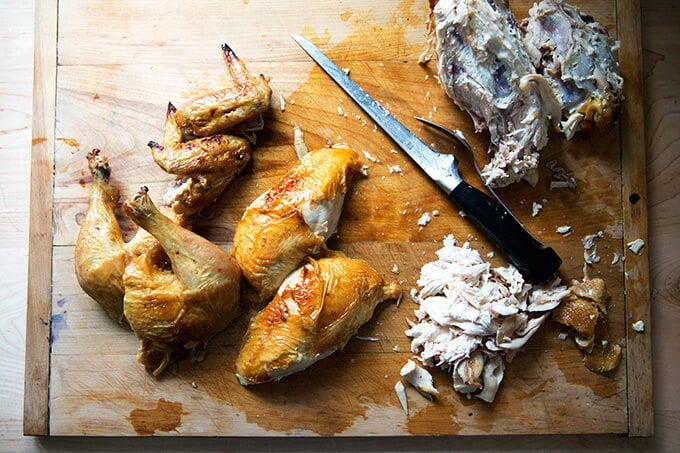
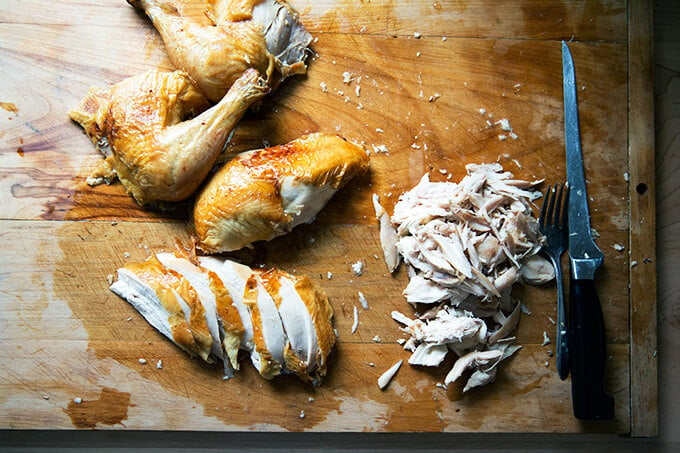
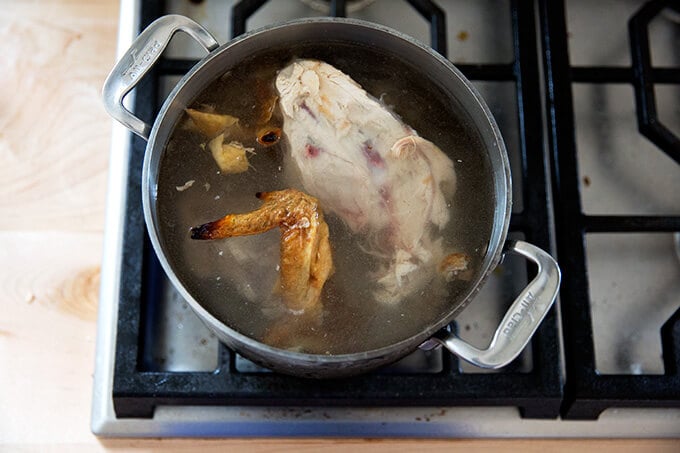
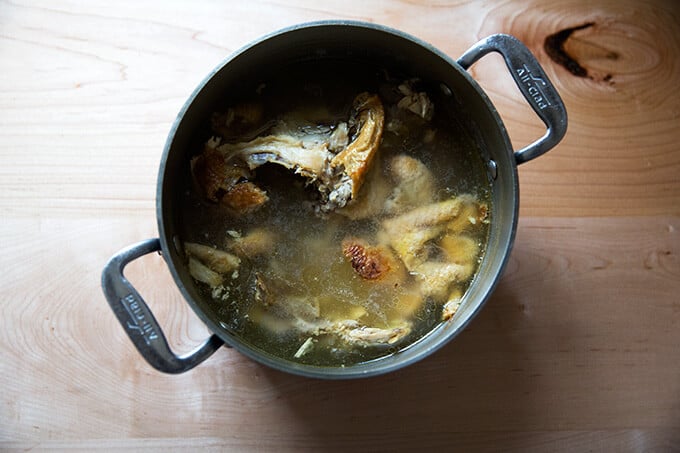
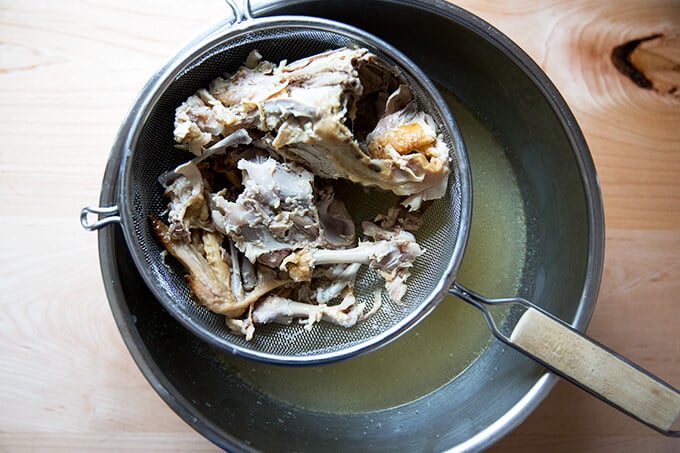
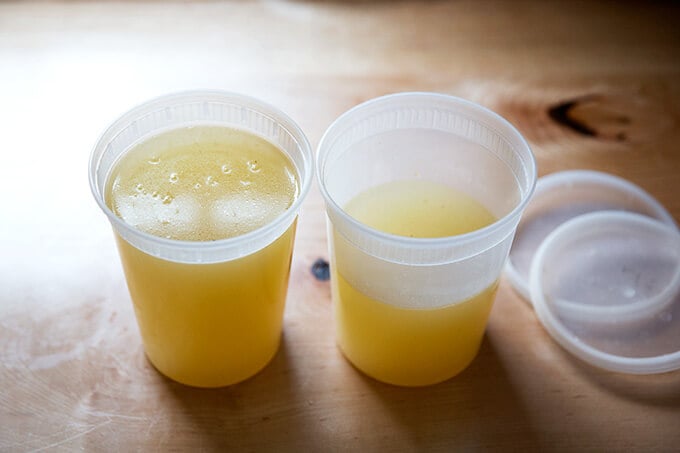
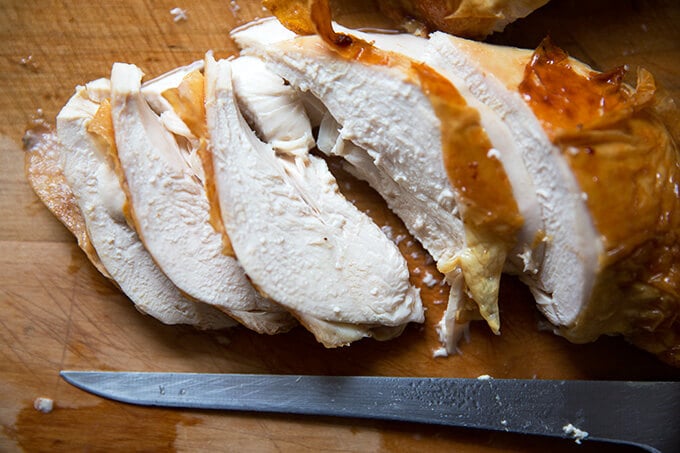
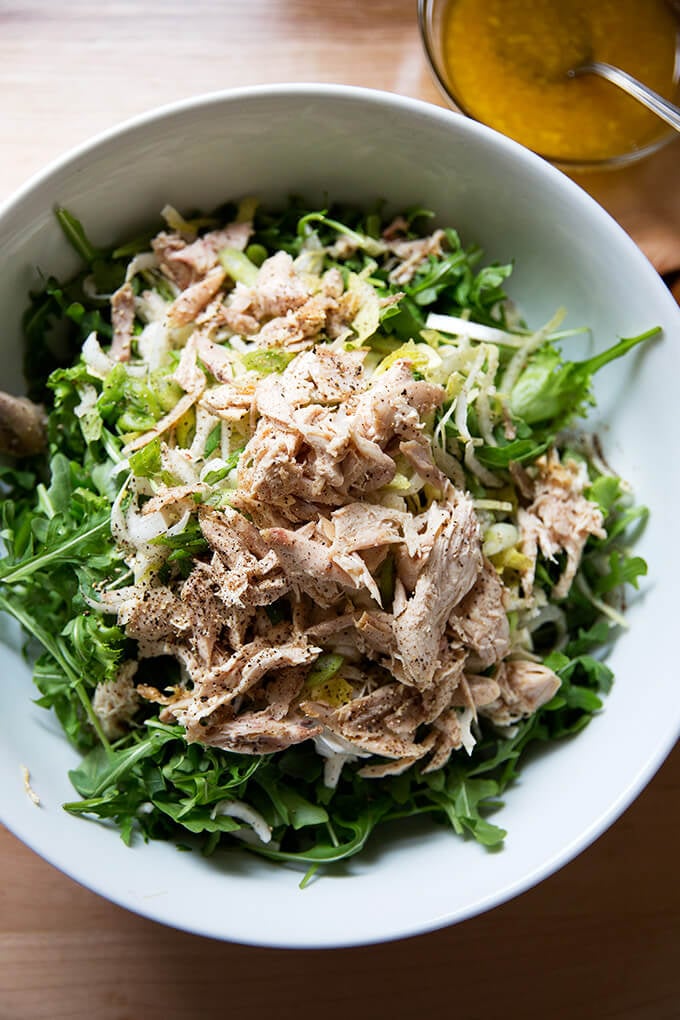
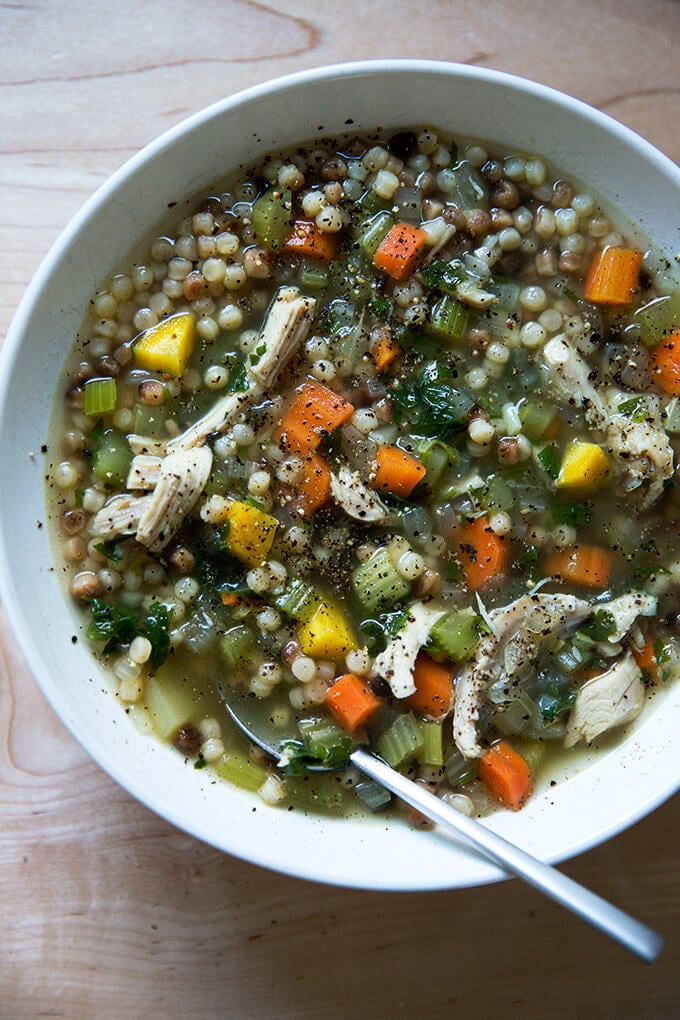


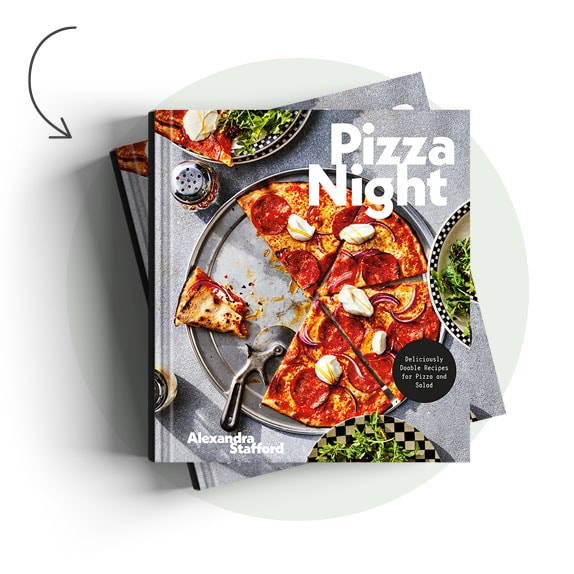
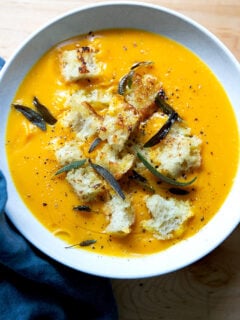

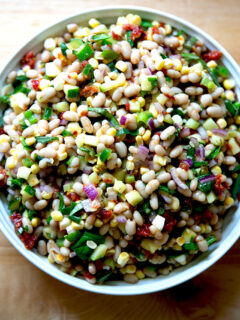
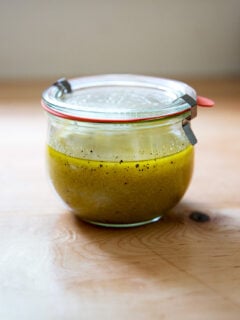

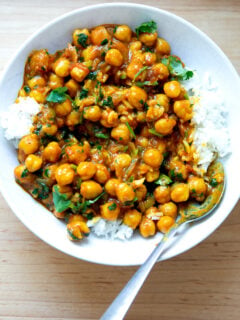


27 Comments on “How to Roast a Chicken (And Make the Most of It)”
Would this salting technique also work for chicken breasts to keep them from being too dry when grilling?
Hi Ann, it probably would. I would experiment, and I think you may need to use less than 1 teaspoon per pound since there are no bones and skin … provided you are using boneless skinless breasts. I would maybe start with just salting them as you would normally salt them before cooking them. Store them in a fridge for a night. Cook the next day. See if you notice any difference. With boneless skinless breasts, also, I always pound them. Do you?
No I haven’t pounded before but I’ll try that. Salt before or after or maybe it doesn’t make a difference?
I would salt before pounding. Good luck!
I just adore you! Yum!
Awww thanks Lisa 🙂 🙂 🙂
Roast Chicken is my ultimate comfort food – love your suggestions for how to use it, and make the most of it.
Brilliant!
Have a fab weekend x
🙂 🙂 🙂
Back in the late 1970’s, when I was in college, I bought a cook book from the college bookstore sale titled, “Good Food and How to Cook it,” by Ann Seranne. In the commentary with her recipe for roast chicken, she wrote that there really is no better eating than a roast chicken. And I heartily agree. Roast chicken is my kryptonite. It’s also my dog’s kryptonite but that’s for another story. Anyway, I have tried many methods of roasting chicken and I will try yours. I don’t get the flavor I desire from spatchcock-ing the chicken, but that method is usually okay. I recently found a Himalayan salt “egg” that is heated for 30 minutes in the oven and then inserted into the chicken to roast. It roasts faster and makes a moist delicious bird without pre- salting, although I still salted and seasoned the exterior skin before roasting. The old, but still available, Glamour magazine recipe for Engagement Chicken is a family favorite in my house too – I haven’t yet tried it with the heated salt egg, but I will. Glad to know you are helping promote roasting chickens – because there really is no better eating than one!!!
Wow, so interesting about the Himalayan salt “egg”! I’m intrigued. I hope this method stands up to the Engagement Chicken recipe. Let me know if you make it!
I love roast chicken and this was one of the best that I ever made! Also the simplest. So crispy and perfectly cooked. I have the carcass and bones in the stock pot and can’t wait to make salads and soup later in the week.
Wonderful to hear this, Akemi! So happy to hear about the stock simmering away, too 🙂 🙂 🙂
Hi, Would you be willing to share the size of the brazier you use. Was it 3 1/2 quart or 5 quart. Thank you very much. Tom
Hi Tom! It’s the 5-qt braiser — love this pan so much.
I just loved it, I’m not only going to give it 5 stars. But, I’m going to share it with all my website’s followers on the social media. Thank you for giving me something useful to share it today!
I have a 5 lb chicken. How would you adjust the cooking time to account for that extra pan? Thanks in advance! (Ps I think I’ve sold 10 of your books on recommendation… I recommend it to everyone!)
Tiffany, so sorry for the delay here!! First: thank you 🙂 🙂 🙂 You are too kind. Means the world.
Second: For a 5-lb chicken I would probably reduce the oven temperature to 425F when you flip the bird the final time. Instead of cooking for 5-10 minutes during that final period, I would cook it 10-15 minutes or longer — check on it every 5 minutes or so. An instant read thermometer is so helpful here … do you have one??
when you put the chicken to brown in the fry pan do you add any oil first when you preheat there was no mention of thsi
No oil first!
Great Success! Thank you! I thought you should know that for my lady Lisa I finally did the Zuni chicken w/ bread salad from bread I baked following your sourdough method, but I made the loaf with yeast water this time. Judy Rodgers’ way really is the best method of roasting chicken, but I wanted to ask you about Cornish game hens. This Sunday I’m going to make Lisa’s favorite Cornish game hens (we have lots of favorites) and I want to dry brine the hens the same as I did Judy Rodgers’ Zuni chicken, but I’m not sure when I should put the salt on them. Since they are smaller, do they need less time? Is there a danger of salting them too long before? I could do them as early as 48 hours prior to cooking them. Also, does the pan need to be shallow or would a larger roasting pan be ok with 2 hens? I have my Dutch Oven that I use for bread that would fit the 2 hens, but obviously that has the taller walls. We do have a baking sheet with 2 inch walls we could use too. I assume that the shallower walls help with more even crisping?
Hi Derek! So nice to hear this. And I hear you regarding using yeast as opposed to starter for this recipe. Sometimes you don’t want that sour flavor.
OK, regarding your questions:
Since they are smaller, do they need less time? I think so. I would do 24 hours in advance. I don’t think you can harm them if you do it longer, but I’m not sure there is a real advantage to doing it 48 hours in advance. That said, if it works with your timeline better to salt them 48 hours in advance, go for it. Again, you won’t hurt them.
Also, does the pan need to be shallow or would a larger roasting pan be ok with 2 hens? A large roasting pan is fine, though I think the pan you mention below will be better.
We do have a baking sheet with 2 inch walls we could use too. I assume that the shallower walls help with more even crisping? Yes! I would use this shallower-walled baking sheet.
This is the only way I roast chicken now… so perfect.
Wonderful to hear this, Tiffany! Thanks so much for writing. There’s nothing like a good roast chicken 🙂 🙂 🙂
Roasted 2 birds last night for dinner with friends. Outstanding and so easy! I’ll never use another roasting method for chicken again. Salting the evening before changes the game – moist delectable flesh! And the roasting method – perfectly golden crispy skin! Thank you so much!
Great to hear, Sharon! I find salting ahead of time to be game-changing as well. Thanks so much for writing!
Have already rated this – it’s the only way I roast chicken now. Question please – I want to roast some Cornish hens. Would I still apply the salt and leave for a full 24 hours? Appreciate your response, thank you!
Yes! Same method. Great to read all of this. Thank you 🙂